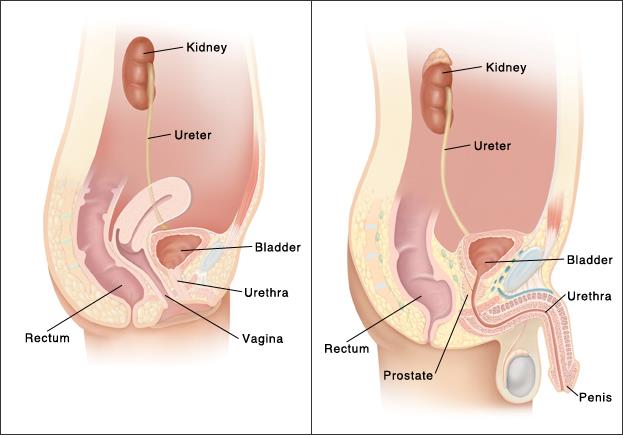Urinary Tract Infection (UTI)
For about one month now I have been suffering from pain around my pelvic area with frequent discharge from my penis. Several tests were run and they confirmed that I am infected with Urinary Tract Infection (UTI). I wish to request for simple information about it. Benedict X. Urinary Tract Infection (UTI) is an infection […]

For about one month now I have been suffering from pain around my pelvic area with frequent discharge from my penis. Several tests were run and they confirmed that I am infected with Urinary Tract Infection (UTI). I wish to request for simple information about it.
Benedict X.
Urinary Tract Infection (UTI) is an infection in any part of your urinary system; be it your kidneys, ureter, bladder and urethra. Most infections involve the lower urinary tract, the bladder and the urethra. Women are at greater risk of developing UTI than men. Infection limited to your bladder can be painful and annoying.
Symptoms
- A strong, persistent urge to urinate.
- A burning sensation when urinating.
- Passing frequent small amounts of urine.
- Urine appears cloudy.
- Urine that appears red, bright pink or cola-coloured a sign of blood in the urine.
- Strong-smelling urine and pelvic pain, in women, especially in the centre of the pelvis and around the area of the pubic bone.
Causes
UTI typically occurs when bacteria enter the urinary tract through the urethra and begin to multiply in the bladder.
- Infection of the bladder (cystitis): This type of UTI is usually caused by Escherichia coli (E.coli), a type of bacteria commonly found in the Gastro Intestinal (GI) tract. However, sometimes other bacteria are responsible.
- Infection of the urethra (urethritis): This type of UTI can occur when GI bacteria spread from the anus to the urethra. Also, because the female urethra is close to the vagina, sexually transmitted infections such as herpes, gonorrhea, chlamydia and mycoplasma can cause urethritis.
Risk factors
- Female anatomy: A woman has a shorter urethra than a man, which shortens the distance that bacteria must travel to reach the bladder.
- Sexual activity: Sexually active women tend to have more UTIs than women who are notv sexually active. Having a new sexual partner also increases your risk.
- Certain types of birth control: Women who use diaphragm for birth control may be at higher risk, as well as women who use spermicidal agents.
- Menopause: During menopause, a decline in circulating estrogen causes changes in the urinary tract which makes one more vulnerable to infection.
Other risk factors:
- Urinary tract abnormalities: Babies born with urinary tract abnormalities that do not allow urine to leave the body normally or cause urine to back up in the urethra have an increased risk of UTIs.
- Blockages in the urinary tract: Kidney stones or an enlarged prostate can trap urine in the bladder and increase the risk of UTIs.
- A suppressed immune system: Diabetes and other diseases that impair the immune system, the body’s defense against germs, can increase the risk of UTIs.
- Catheter: People who cannot urinate on their own and use a tube (catheter) to urinate have an increased risk of UTIs. This may include people who are hospitalised, people with neurological problems that make it difficult to control their ability to urinate and people who are paralysed.
Complications
- Recurrent infection, especially in women who experience two or more UTIs in a six-month period or four or more within a year.
- Chronic kidney infection (pyelonephritis) due to an untreated UTI.
- Increased risk in pregnant women of delivering low birth weight or premature infants.
- Urethral narrowing (stricture) in men from recurrent urethritis, previously seen with gonococcal urethritis.
- Sepsis, a potentially life-threatening complication of an infection, especially if the infection works its way up your urinary tract to your kidneys.
Prevention
- Drink plenty of liquids, especially water.
- Wipe from front to back: Doing so after urinating and after a bowel movement helps prevent bacteria in the anal region from spreading to the vagina and urethra.
- Empty your bladder soon after intercourse. Also, drink a full glass of water to help flush bacteria.
- Avoid potentially irritating feminine products. Using deodorant sprays or other feminine products such as douches and powders, in the genital area can irritate the urethra.
- Change your birth control method. Diaphragms or unlubricated or spermicide-treated condoms can all contribute to bacterial growth.
Treatment
Antibiotics usually are the first line treatment for UTIs.
Which drugs are prescribed and for how long depend on your condition and the type of bacteria found in your urine.
